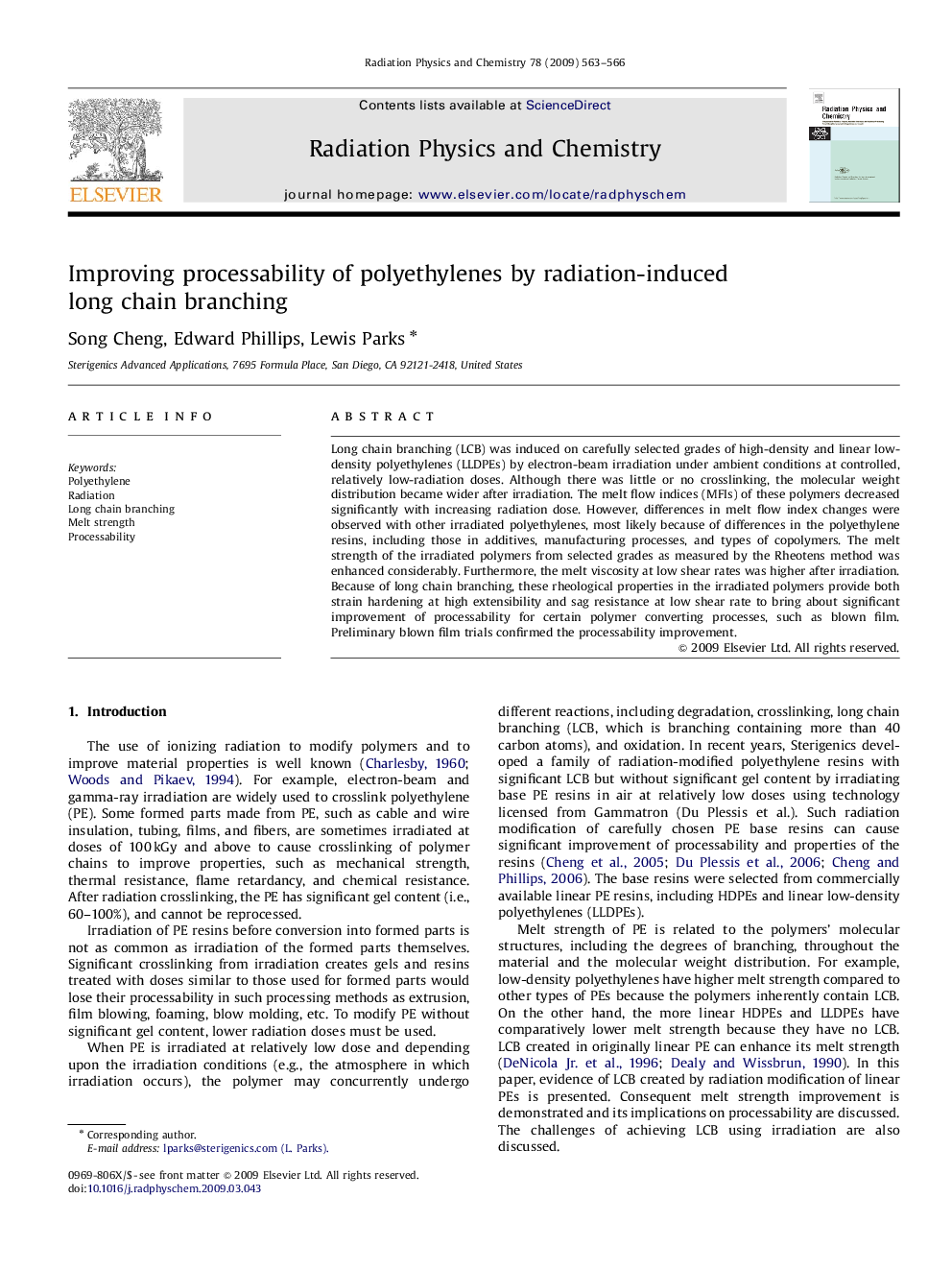| Article ID | Journal | Published Year | Pages | File Type |
|---|---|---|---|---|
| 1883198 | Radiation Physics and Chemistry | 2009 | 4 Pages |
Long chain branching (LCB) was induced on carefully selected grades of high-density and linear low-density polyethylenes (LLDPEs) by electron-beam irradiation under ambient conditions at controlled, relatively low-radiation doses. Although there was little or no crosslinking, the molecular weight distribution became wider after irradiation. The melt flow indices (MFIs) of these polymers decreased significantly with increasing radiation dose. However, differences in melt flow index changes were observed with other irradiated polyethylenes, most likely because of differences in the polyethylene resins, including those in additives, manufacturing processes, and types of copolymers. The melt strength of the irradiated polymers from selected grades as measured by the Rheotens method was enhanced considerably. Furthermore, the melt viscosity at low shear rates was higher after irradiation. Because of long chain branching, these rheological properties in the irradiated polymers provide both strain hardening at high extensibility and sag resistance at low shear rate to bring about significant improvement of processability for certain polymer converting processes, such as blown film. Preliminary blown film trials confirmed the processability improvement.
